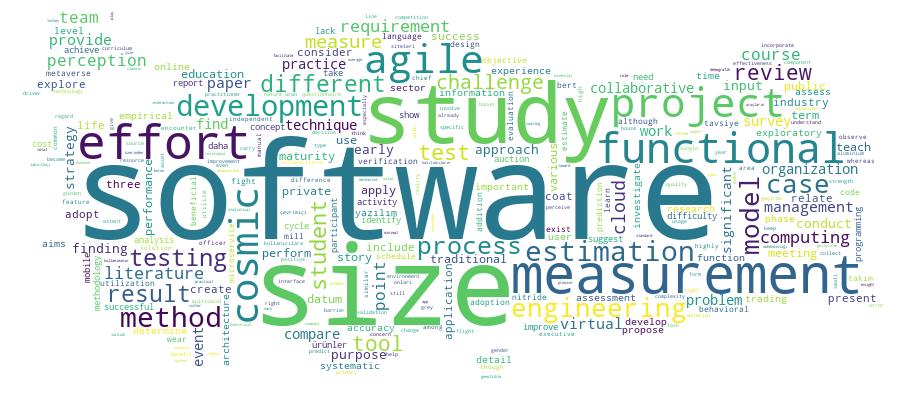Hacaloğlu, Tuna
Loading...

Profile URL
Name Variants
Hacaloğlu,T.
H.,Tuna
T., Hacaloğlu
T.,Hacaloğlu
Hacaloglu, Tuna
Tuna, Hacaloğlu
Hacaloglu,T.
T., Hacaloglu
H., Tuna
Tuna, Hacaloglu
T.,Hacaloglu
Hacaloğlu, Tuna
Hacaloglu T.
H.,Tuna
T., Hacaloğlu
T.,Hacaloğlu
Hacaloglu, Tuna
Tuna, Hacaloğlu
Hacaloglu,T.
T., Hacaloglu
H., Tuna
Tuna, Hacaloglu
T.,Hacaloglu
Hacaloğlu, Tuna
Hacaloglu T.
Job Title
Doktor Öğretim Üyesi
Email Address
tuna.hacaloglu@atilim.edu.tr
Main Affiliation
Information Systems Engineering
Status
Website
ORCID ID
Scopus Author ID
Turkish CoHE Profile ID
Google Scholar ID
WoS Researcher ID
Sustainable Development Goals
2
ZERO HUNGER

0
Research Products
11
SUSTAINABLE CITIES AND COMMUNITIES

0
Research Products
14
LIFE BELOW WATER

0
Research Products
6
CLEAN WATER AND SANITATION

0
Research Products
1
NO POVERTY

0
Research Products
5
GENDER EQUALITY

0
Research Products
9
INDUSTRY, INNOVATION AND INFRASTRUCTURE

0
Research Products
16
PEACE, JUSTICE AND STRONG INSTITUTIONS

0
Research Products
17
PARTNERSHIPS FOR THE GOALS

3
Research Products
15
LIFE ON LAND

0
Research Products
10
REDUCED INEQUALITIES

0
Research Products
7
AFFORDABLE AND CLEAN ENERGY

0
Research Products
8
DECENT WORK AND ECONOMIC GROWTH

0
Research Products
4
QUALITY EDUCATION

0
Research Products
12
RESPONSIBLE CONSUMPTION AND PRODUCTION

0
Research Products
3
GOOD HEALTH AND WELL-BEING

0
Research Products
13
CLIMATE ACTION

0
Research Products

Documents
25
Citations
285
h-index
8

Documents
15
Citations
153

Scholarly Output
28
Articles
13
Views / Downloads
96/0
Supervised MSc Theses
0
Supervised PhD Theses
0
WoS Citation Count
153
Scopus Citation Count
265
WoS h-index
6
Scopus h-index
8
Patents
0
Projects
0
WoS Citations per Publication
5.46
Scopus Citations per Publication
9.46
Open Access Source
9
Supervised Theses
0
Google Analytics Visitor Traffic
| Journal | Count |
|---|---|
| IEEE Software | 2 |
| CEUR Workshop Proceedings -- Joint of the 33rd International Workshop on Software Measurement and the 18th International Conference on Software Process and Product Measurement, IWSM-MENSURA 2024 -- 30 September 2024 through 4 October 2024 -- Montreal -- 204467 | 2 |
| 18th IFIP WG 6.11Conference on e-Business, e-Services, and e-Society (I3E) -- SEP 18-20, 2019 -- Norwegian Univ Sci & Technol, Fac Informat Technol & Elect Engn, Dept Comp, Trondheim, NORWAY | 1 |
| 45th Euromicro Conference on Software Engineering and Advanced Applications (SEAA) / 22nd Euromicro Conference on Digital System Design (DSD) -- AUG 28-30, 2019 -- Kallithea, GREECE | 1 |
| 48th Euromicro Conference on Software Engineering and Advanced Applications -- AUG 31-SEP 02, 2022 -- SPAIN | 1 |
Current Page: 1 / 5
Competency Cloud


